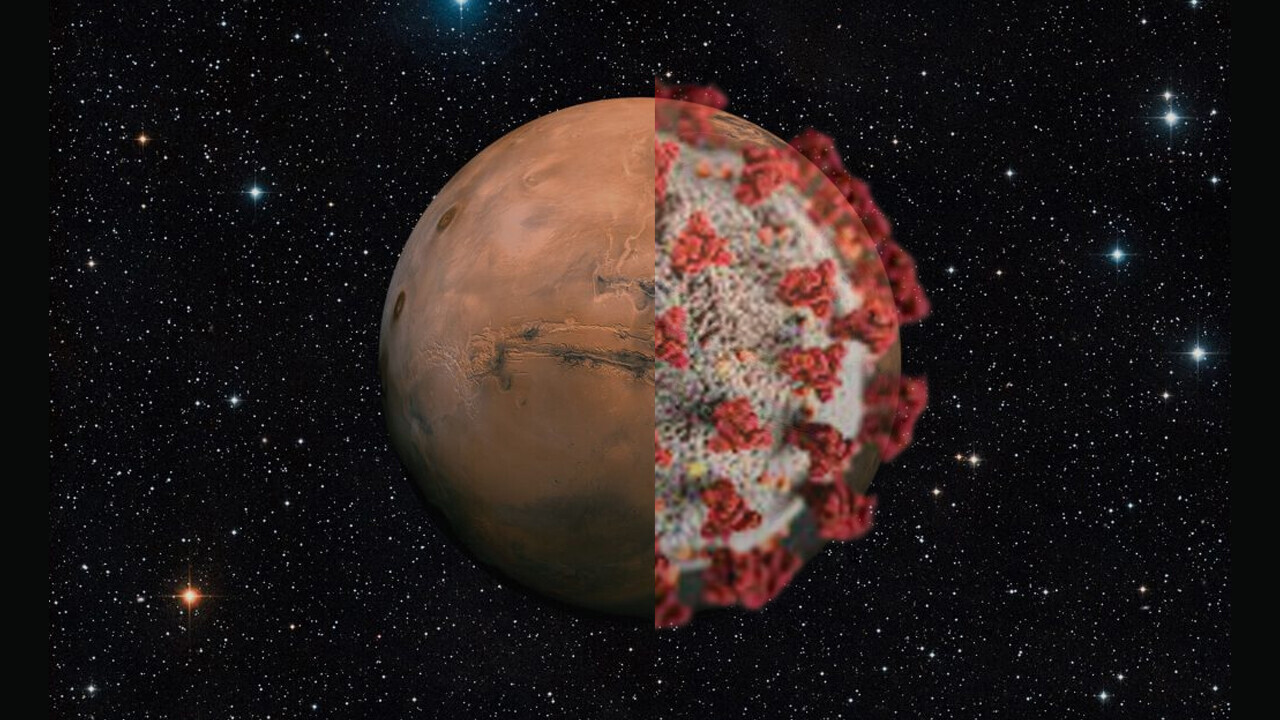
Did you know Neural is taking the stage this fall? Together with an amazing line-up of experts, we will explore the future of AI during TNW Conference 2021. Secure your ticket now!
If you let NASA tell the story, some of the people walking around on this planet right now may end up taking a stroll on the surface of Mars during their lifetimes.
People such as Elon Musk believe we’ll colonize the red planet entirely and become a two-planet species. And this could be one of humankind’s most important endeavors – after all, who knows when another asteroid the size of the one that may have taken out the dinosaurs is going to hit again.
It could also be far more complex than NASA or SpaceX has actually considered.
We’re going to need a way to grow food, store water, and produce breathable air in order for humans to survive on Mars.
But colonizing a harsh world is about more than just not dying. In order for humankind to grow and prosper on Mars as we have on Earth, we’re going to need good old-fashioned Earth viruses. And lots of em’.
That’s according to the director of Arizona State University’s Beyond Center for Fundamental Concepts in Science, Professor Paul Davies.
Davies recently discussed the importance of viruses in an interview published in The Guardian:
Viruses actually form part of the web of life. I would expect that if you’ve got microbial life on another planet, you’re bound to have – if it’s going to be sustainable and sustained – the full complexity and robustness that will go with being able to exchange genetic information.
As Davies and myriad other scientists suspect, it’s possible that viruses are not just part of Earth’s biome but an essential component of evolution.
This is because of a fascinating aspect of evolutionary growth called “horizontal gene transfer.”
During horizontal gene transfer a species is believed to get certain traits through exposure from viruses rather than the traditional genetic route. According to Davies, some scientists believe most of the human genome is derived from viral sources.
In other words: humans are still evolving. It’s possible our further evolution will require access to viruses that modify our genome over vast periods of time.
If we were to successfully colonize Mars (which would involve solving innumerable problems in its own right), those people who lived, procreated, and died there could potentially diverge from the human race.
It’s conceivable that, after a certain number of generations of Martian colonists have been born, the human race could split into an Earth species and a Mars one solely based on exposure to viruses.
These are probably far-future problems, but the rate at which politicians and private-sector companies are attempting to conduct crewed missions to Mars with the expressed purpose of building a colony is alarming.
It’s impossible to know the ramifications of colonizing a planet without our Earthbound viruses – most of which are actually good, they’re not all COVID-19.
And it’s also impossible to know the ramifications of intentionally transporting and unleashing our planet’s diseases on the rest of the cosmos.
The good news, according to Davies, is that any aliens out there almost certainly have their own biomes and viruses that sustain their life. And, typically speaking, a virus is only harmful to the host it evolved to attack.
So, space viruses probably aren’t harmful to humans. But what happens when an alien virus and an Earth virus start mixing things up? And what happens to humanity when we leave our Earth viruses behind?
It’s obvious that there’s more to colonizing another world than just hauling supplies and figuring out how future generations can eventually terraform a barren wasteland. Here’s hoping the people authorizing these projects are listening to more than just billionaires and engineers.
Get the TNW newsletter
Get the most important tech news in your inbox each week.




